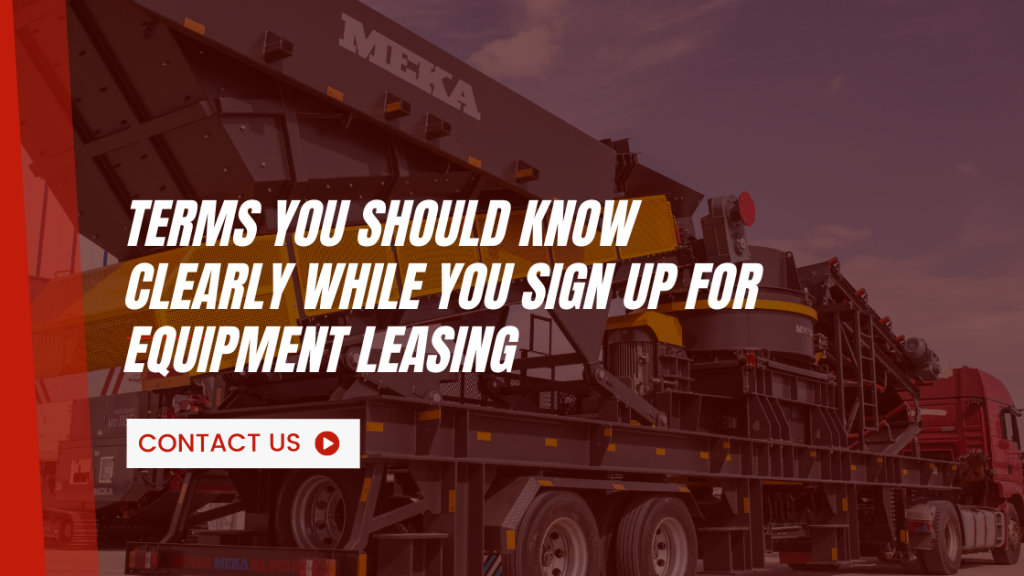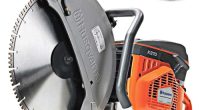Terms You Should Know Clearly While You Sign up for Leasing
As you begin researching your equipment rental options, you’ll come across some common terms. This list is not exhaustive; just the beginning of your research. Accelerated depreciation: high depreciation in the first year of the asset’s life cycle.
Rent Payment: Payment by the landlord to the tenant at the beginning of the tenancy (ie the first and last month’s rent). Amortization: Payback of a loan over time into principal and interest components.
Affordable purchase option: a lease clause that allows the lessee to purchase the leased property at a price determined at the beginning of the lease and displayed at a later date. Default: The tenant fails to comply with the lease agreement, causing the tenant to recover the equipment and all damages under the agreement.
Amortization: A reasonable allowance for wear and tear on the equipment used by the business. Estimated Useful Life (or Life Cycle): The expected time that the equipment will be useful to the business.
Facility Arrangement: A detailed document detailing the loan facility, start date, terms, repayment schedule, and facility condition. Fair Market Value: The option to purchase property at the end of the lease at the current market value.
Lease Schedule: The master lease agreement outlines the leased property, lease and other terms. The home of the house: the user of a paid equipment.
Exception: The company has the equipment and lots of residents. Purchase option: The right to purchase the property at the end of the lease term at a price specified in the lease and commitment.
Renewal Option: An option for the homeowner to renew the term of the lease at a specified time. Upgrade: To exchange a leased property for a new or better one during the lease term.

Terms You Should Know Clearly While You Sign up for Leasing
Business owners can rent out all the equipment. The most popular ones are cars or machines, such as construction equipment, tractors/trailers, cars, and trucks. In addition, furniture, communication systems, security systems, computers and printing machines can be rented. However, there are things that cannot be rented. Items that perish during consumption, for example, such as office equipment, or small items with a short life, such as coffee cups or other equipment for office breaks. For purposes like these, you won’t find rental options under $5,000. Paying a lease will involve time and valuable activities including opening, negotiating and executing the lease, making the lease less profitable for the landlord. Software, warranty, training, and installation services are also not something you would find a rental company for. Such things have an invisible number that is difficult to analyze over time and remains good for both parties. The importance of these transactions is to buy completely.
This method is common
As mentioned earlier, once you decide to lease a property, the first step is to find a lender. Having a good working relationship with a knowledgeable and helpful lender will make your job easier. During the first meeting, you will be asked to complete an application. Although some lenders rely on a one-page application and make their decision based on your credit score, it is common to include a supporting document with your application.
This document includes the credit history of the business, including a successful record of past rent or loan payments. They will also want to see your financial history to get an idea of your company’s business trends and projections for the future. The lender will ask you if you have a contract to offer. He will also want to see financial statements, tax returns from at least one to three years, and your credit report. If you are a new business, they may also ask to see a business plan. When meeting, be confident but approachable. Your personal impression of the lender will be a factor in their decision. Reassure them through your attire, your demeanor and any references you can give that they are dealing with knowledgeable professionals.
Conclusion
Once approved for financing, you will begin negotiating the terms with the lender. If you get approved and work with a realtor, let your lender know the terms of the lease when negotiating with the realtor. Ask them if you have any questions about location and pricing. Finally, once the contract seems to be done, don’t be afraid to ask your lawyer or legal team to review the document before you sign it. Reputable sellers and lenders will not have a problem with this, because it shows your diligence and full attention to your business management practices.

